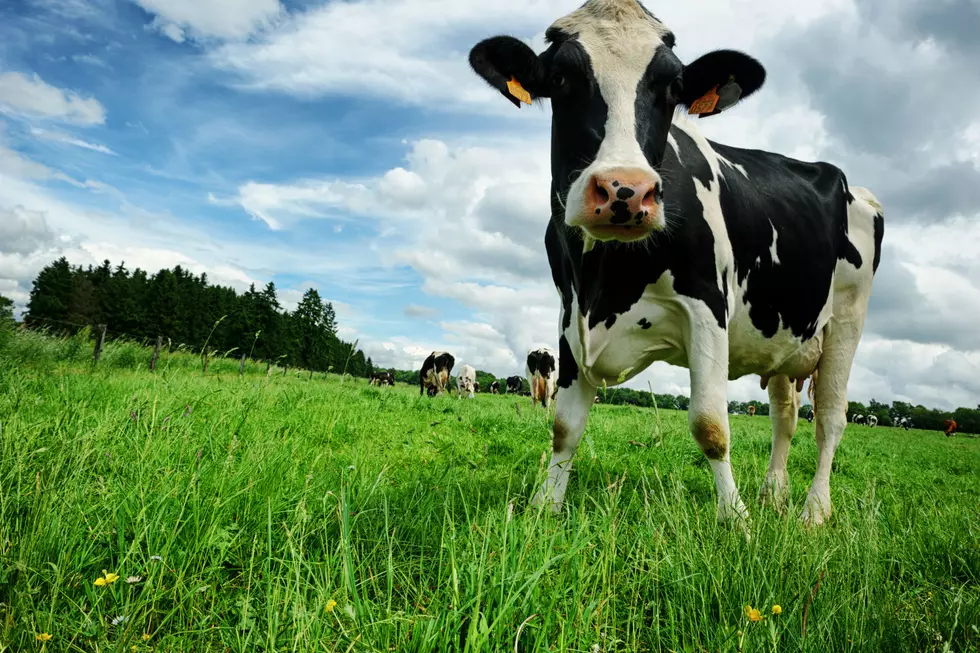
Could Seaweed Curb Cows’ Flatulence and Save The Planet?
Cows are gassy creatures. Their farts and burps have methane. Methane exacerbates climate change, and for years, scientists have attempted to find ways to interrupt climate change and help our planet survive. Now, they're trying something new.
University of California researchers have found that cows' gas makes up 25% of methane emissions in the U.S. but those who ingest seaweed emit less methane, according to the Press Herald. The only problem is, the planet doesn't produce enough seaweed to support all the cows in the U.S. In response, a New England-based aquaculture company called Australis Aquaculture in Greenfield, Massachusetts is paving the way in commercial seaweed production. Australis CEO Josh Goldman told the Press Herald why they are pouring resources into the "Greener Grazing" effort:
“If you could feed all the cows this seaweed, it would be the equivalent of taking all these cars off the road,” Goldman said. “Greener Grazing’s mission is to cultivate this, and accelerate scaling of this kind of seaweed.”
The type of algae in question is called Asparagopsis, a red seaweed that grows wild in many parts of the world. According to the Press Herald, UC Davis researchers found earlier this year that the methane emissions of a dozen cows that ate the seaweed were reduced by 24 to 58 percent. Apparently the seaweed interrupts the bacterial process of producing methane in their guts, Goldman said.
Will seaweed diets curb cows' gas and save our planet? Well, probably not. First of all, more testing needs to be completed to determine if a diet of seaweed would impact meat and milk quality from the animals. The production needs are somewhat of a pipedream, or a n "aquatic moonshot" according to Goldman. Finally, there's the question of farmers' support of the change. Jenni Tilton-Flood, a dairy farmer at Flood Brothers Farm in Clinton, Maine, said she’d be willing to try it, but cost and availability are also important factors.
More From Q97.9









